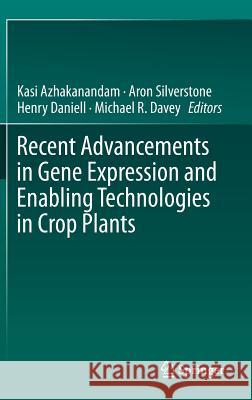Recent Advancements in Gene Expression and Enabling Technologies in Crop Plants » książka
Recent Advancements in Gene Expression and Enabling Technologies in Crop Plants
ISBN-13: 9781493922017 / Angielski / Twarda / 2015 / 455 str.
In this book, authors who are experts in their fields describe current advances on commercial crops and key enabling technologies that will underpin future advances in biotechnology. They discuss state of the art discoveries as well as future challenges. Tremendous progress has been made in introducing novel genes and traits into plant genomes since the first creation of transgenic plants thirty years ago, and the first commercialization of genetically modified maize in 1996. Consequently, cultivation of biotech crops with useful traits has increased more than 100-fold from 1.7 million hectares in 1996 to over 175 million hectares globally in 2013. This achievement has been made possible by continued advances in understanding the basic molecular biology of regulatory sequences to modulate gene expression, enhancement of protein synthesis and new technologies for transformation of crop plants.This book has three sections that encompass knowledge on genetically modified (GM) food crops that are currently used by consumers, those that are anticipated to reach the market place in the near future and enabling technologies that will facilitate the development of next generation GM crops. Section I focuses only on genetically modified maize and soybean (3 chapters each), while Section II discusses the GM food crops rice, wheat, sorghum, vegetables and sugar cane. Section III covers exciting recent developments in several novel enabling technologies, including gene targeting, minichromosomes, and in planta transient expression systems.











